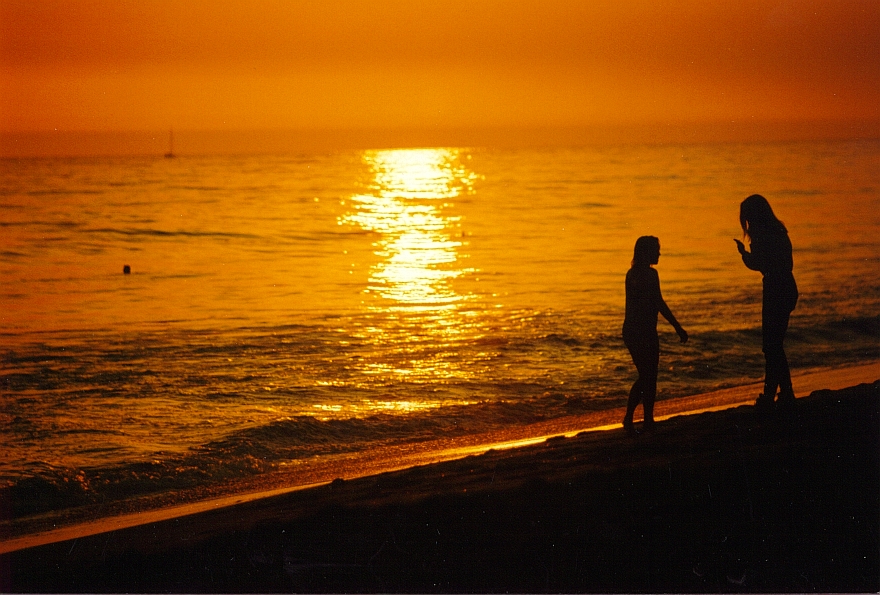I somehow missed this last week:
The first officers at the controls of Air France 447 (the captain was initially on his rest break when the troubles began) were not apprentices. They were fully rated, Airbus A330 pilots with thousands of hours of experience. Of course they were trained in "manual aircraft handling"! And yet again we have the suggestion that a "manually" flown plane is some sort of oddity, and that pilots aren't used to it. This is bollocks.
That the pilots lacked this training is worthy of some focus. Jetliners behave very differently at upper altitudes. It's a less forgiving, less stable realm, and high-altitude stalls are extremely dangerous. But all pilots understand these principles, and would be expected to fall back on basic flying skills. In any case, it may not have made any difference. The crew reacted improperly, it seems, in the throes of a high-altitude stall, turning a difficult situation into a catastrophic one. But consider the circumstances: They were dealing with multiple critical failures, in violent weather, in darkness.
"The crew was left attempting to recover their aircraft in heavy weather while their primary displays were constantly going blank and resetting," says Dave White, a former Airbus captain. "One imagines how confusing the cockpit must have been with all the malfunctions -- and, consequently, no idea what instruments to trust. I question the unstated assumption that the crew was seeing the same data that the flight data recorder was getting. I would also like to know if the mishap aircraft was showing even basic attitude data to the crew. It is possible those displays were also blanking out during the descent -- or providing erroneous data. In my opinion, hardware and software failures resulted in a situation that perhaps no crew would be able to recover from. This was a design accident, not a pilot error accident."
This is not the first time the BEA blamed pilots when the Airbus software might have contributed more, by the way.
Three years ago today, I was in Atlanta:

Canon 20D at ISO-1600, 1/125 at f/5.6, 18mm, here.
We're still three weeks from meterological autumn and we've already had the wettest summer in 54 years and the second-wettest ever:
The new rains are to fall in the midst of the Chicago area's wettest meteorological summer (the period which began June 1) in 54 years. A total of 420 mm has occurred to date which makes this the second wettest summer to date since the official observational record began here in 1871. That amount is nearly twice the 140 year average to date of 219 mm.
And what do we have in today's forecast? Yup. Rain.
At least it's only getting up to 26°C this weekend. I have my windows open for only the second time since July 7th.
Last night, after getting back from San Antonio, I opened the windows for the first time in nearly six weeks. We had, I believe, one of the hottest and stickiest Julys I've ever experienced. But yesterday when I got home the temperature was 23°C and dropping—finally cooler outside my air-conditioned apartment than inside it.
Unfortunately for my colleagues down in Texas, it's no cooler there:
| Day | San Antonio | Chicago |
|---|
| Sun Aug 7 | 38°C | 30°C |
| Mon Aug 8 | 38°C | 27°C |
| Tue Aug 9 |
39°C | 27°C |
| Wed Aug 10 | 39°C | 25°C |
| Thu Aug 11* | 40°C | 24°C |
* forecast
I understand, however, that they have beautiful winters....
Since I last mentioned an annual study that reports which countries allow visa-free visitors from which other countries, the U.S. has fallen out of second place:
Scandinavians and Finns, by contrast, can travel to 173 countries or territories (out of a possible 223) without the need to fill in forms with curious questions dreamt up by bureaucrats.
The law firm Henley & Partners, which compiles the list, now has the U.S. tied at 5th with Ireland. The other top-5 countries are as follows:
| Rank | Countries | Can visit |
|---|
| 1 | Denmark, Finland, Sweden | 173 |
| 2 | Germany | 172 |
| 3 | Belgium, France, Italy, Luxembourg, Netherlands, UK | 171 |
| 4 | Japan, Norway, Portugal, Spain | 170 |
| 5 | Ireland, US | 169 |
When I have time, I'll try to chase down the raw data to find out, again, which countries we need visas to visit that our European and Japanese friends don't.
Slate's Farhad Manjoo examines the phenomenon:
The rest of the Web long ago did away with auto-playing music, Flash buttons and menus, and elaborate intro pages, but restaurant sites seem stuck in 1999. The problem is getting worse in the age of the mobile Web—Flash doesn't work on Apple's devices, and while some of these sites do load on non-Apple smartphones, they take forever to do so, and their finicky navigation makes them impossible to use.
When you visit many terrible restaurant websites in succession, it becomes obvious that they're not bad because of neglect or lack of funds—these food purveyors appear to have spent a great deal of money and time to uglify their pages. Indeed, there seems to be an inverse relationship between a restaurant's food and its site. The swankier the place, the worse the page. Chez Panisse, Alice Waters' Berkeley temple of simple, carefully sourced local cuisine, starts with a pointless, grainy five-second clip of what looks like a scene from a Fellini movie. Alinea, the Chicago molecular gastronomy joint, presents you with a series of menu buttons that aren't labeled; you've got to mouse over each one to find out what you're about to click on.
Not all is lost. I spoke to a few restaurateurs who've created great, easy to use, elegant sites, and they all said they were motivated by one thing: They were missing out on traffic from mobile devices. The steakhouse chain Morton's, for instance, has a mobile site that uses your GPS location to get you information on the restaurant closest to you. The site loads up quickly, and lets you make a reservation in a matter of seconds. "We wanted to keep the bells and whistles at a minimum," Roger Drake, the company's head of marketing, told me.
Not only did I agree with Manjoo wholeheartedly, but I also started thinking about steak...
Democrats in Wisconsin picked up two state senate seats in an unprecedented recall election:
Democrats defeated Republican state Sen. Dan Kapanke, who represented the most Dem-leaning seat of any Republican in the chamber, by a 55%-45% margin. They also won a 51%-49% victory over state Sen. Randy Hopper, whose campaign was also damaged by a messy divorce, and allegations by his estranged wife that he "now lives mostly in Madison" after having an affair.
This would get Democrats from their previous 19-14 minority, following the 2010 Republican wave, to a 17-16 margin. In two more safe Republican districts, incumbents Robert Cowles and Sheila Harsdorf won by margins of 60%-40% and 58%-42%, respectively
At the very least, this might signal to the Wisconsin GOP that a good chunk of the electorate believes they lurched too far right since being elected:
All six of these districts were, on paper, serious uphill climbs for Democrats. The incumbents were last elected in 2008, winning their districts even in the middle of the huge Democratic wave that year.
After this near-miss, the next question becomes: How will this result impact the Democrats' declared intentions to recall Gov. Scott Walker some time next year? Will the Dems' grassroots energy flatten out -- or can it keep going, towards the lofty goal of collecting over half a million signatures, plus a buffer, to trigger a recall election?
It also means, for the next 15 months or so, Wisconsin politics might be the most divisive and vicious in the country. Thanks for all your help, Koch brothers!
This is actually a scan of a print, from July 1991:

That's available light on Kodacolor 100, in Balboa Beach, Calif., about here.